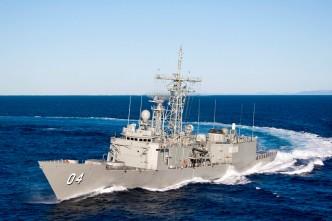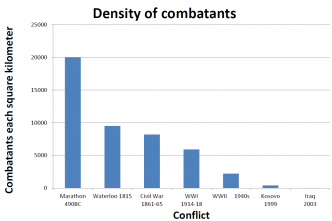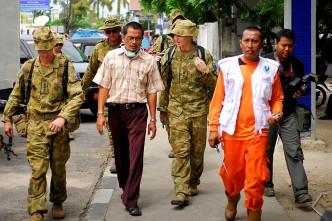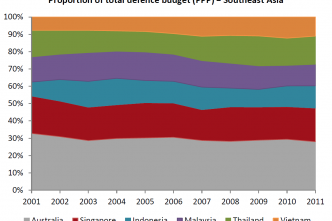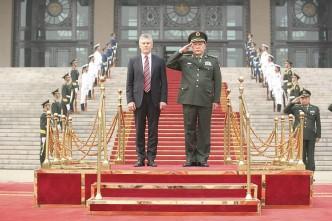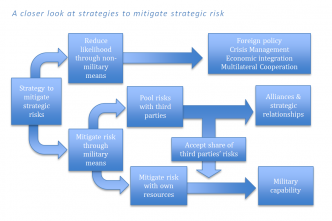A continuous theme of successive White Papers has been that our strategic challenges in the South Pacific come not from powerful states, but from weak ones. The idea that weak South Pacific states pose a …
With characteristic precision, Mark Thomson has put his finger on the primary question for Australian defence policy today: not how much should we spend on the ADF, but what do we want it to do? …
Yesterday it was revealed that a film crew will accompany Australian police, military and government officials as they head to Nauru and Manus Island to prepare for the arrival of an expected influx of asylum …
On current planning, the Australia in the Asian Century White Paper will be released within a few weeks. Former Treasury Secretary Dr Ken Henry and his team are finalising the report and Cabinet will consider …
Mark Thomson thinks that the recent irrational and irresponsible reduction in defence funding is retrievable. He thinks that we do not need a larger or stronger force than we have at the moment. He says that …
Choosing which grand strategy to use depends on how others can be influenced—however, this is only half of the matter. There is also an internal dimension where the power is developed that the external dimension …
Ever since the government slashed defence spending back in May, they’ve copped a shellacking in the press. In case you haven’t caught up, here’s a selection of what’s being said: Hugh White (Australian National University) …
The structure of a country’s naval fleet should reflect the thinking of governments (and navy) about their use of the sea. To a large extent it’s possible to ‘reverse engineer’ naval aspirations from the force …
New Zealanders have always discounted claims that Canberra’s defence purse-strings are being tightened—until now. The days when the proportion of Australian GDP devoted to defence was twice the New Zealand level of roughly 1% appear …
Rising tensions in the South China Sea over the past few weeks have served to highlight the rancorous nature of strategic competition in Asia. Following its stand-off with Philippines over the Scarborough Shoal and a …
I recently had the pleasure of talking about military capability to the Australian Command and Staff College. One of the topics I wanted to cover was the impact of technology on warfare. The first thing …
As I pointed out in my previous post, there’s a much-neglected policy principle embedded in the conceptual framework that guides Australian defence planning: in the event of major deterioration in Australia’s strategic circumstances, the Government …
Before turning its attention to the future force structure of the ADF, the team writing the 2013 Defence White Paper will have to grapple with the rising cost of even maintaining the existing force. This …
In the 2009 Defence White Paper, the Government expected the ADF to carry out a number of tasks. In addition to its core war fighting roles, there were a number of secondary tasks, including missions …
Andrew’s recent chart demonstrated how Australia’s defence spending equals the combined budgets of the five biggest spending ASEAN countries. Charts like this do a great job of communicating the magnitudes of spending involved, and put …
Jason Lim responds to Tim Huxley’s post on Singapore–US relations: The relationship between China, the United States and Singapore is a complex one. Singapore has always seen itself as an ally of the United States …
The twin notions of force expansion and warning time have been integral to Australian defence planning since the 1970s. Yet over the years the focus on these issues has been neither strong nor consistent. Today, …
Defence Minister Stephen Smith used his ASPI speech on Wednesday night to make the definitive case for bringing the White Paper forward by a year. Close followers of the defence debate will be familiar with …
In my first post, I argued while there are very good historical reasons Australia should stay close to the United States, there are a number of factors for Defence White Paper writers to consider. Here, …
Paul Monk initiated a valuable debate on these pages about the role of risk in defence planning. As it happens, I’ve been thinking along similar lines for sometime myself. So here’s my take on the …


